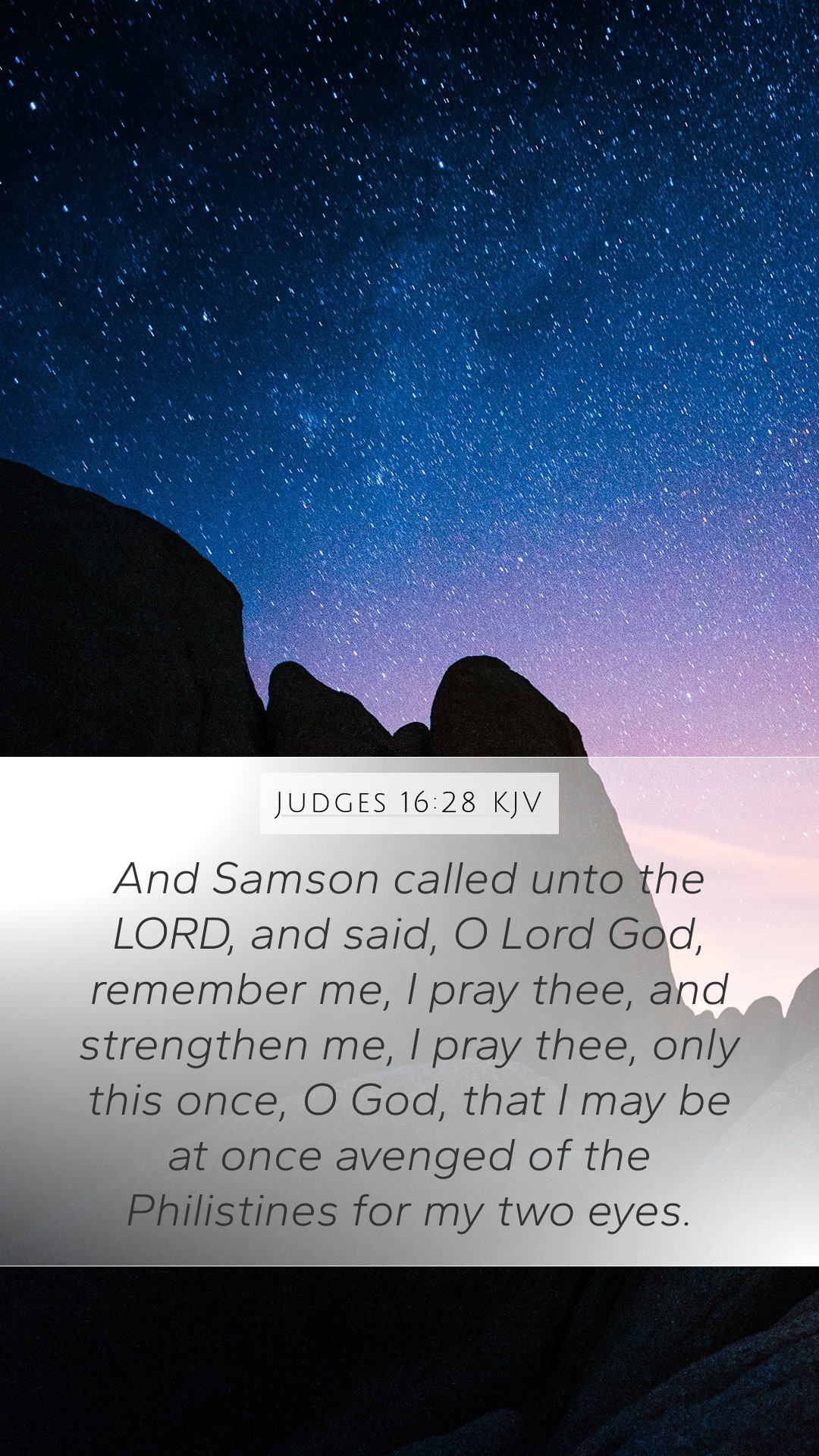Old Testament
Genesis Exodus Leviticus Numbers Deuteronomy Joshua Judges Ruth 1 Samuel 2 Samuel 1 Kings 2 Kings 1 Chronicles 2 Chronicles Ezra Nehemiah Esther Job Psalms Proverbs Ecclesiastes Song of Solomon Isaiah Jeremiah Lamentations Ezekiel Daniel Hosea Joel Amos Obadiah Jonah Micah Nahum Habakkuk Zephaniah Haggai Zechariah MalachiVerse
Judges 16:1 Judges 16:2 Judges 16:3 Judges 16:4 Judges 16:5 Judges 16:6 Judges 16:7 Judges 16:8 Judges 16:9 Judges 16:10 Judges 16:11 Judges 16:12 Judges 16:13 Judges 16:14 Judges 16:15 Judges 16:16 Judges 16:17 Judges 16:18 Judges 16:19 Judges 16:20 Judges 16:21 Judges 16:22 Judges 16:23 Judges 16:24 Judges 16:25 Judges 16:26 Judges 16:27 Judges 16:28 Judges 16:29 Judges 16:30 Judges 16:31

